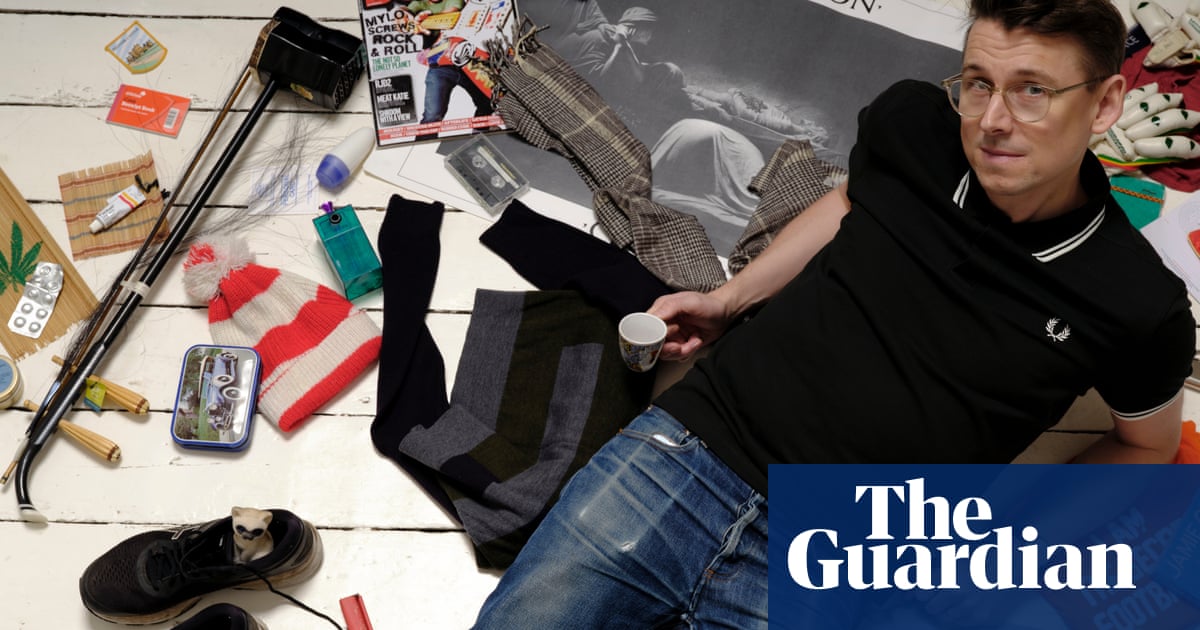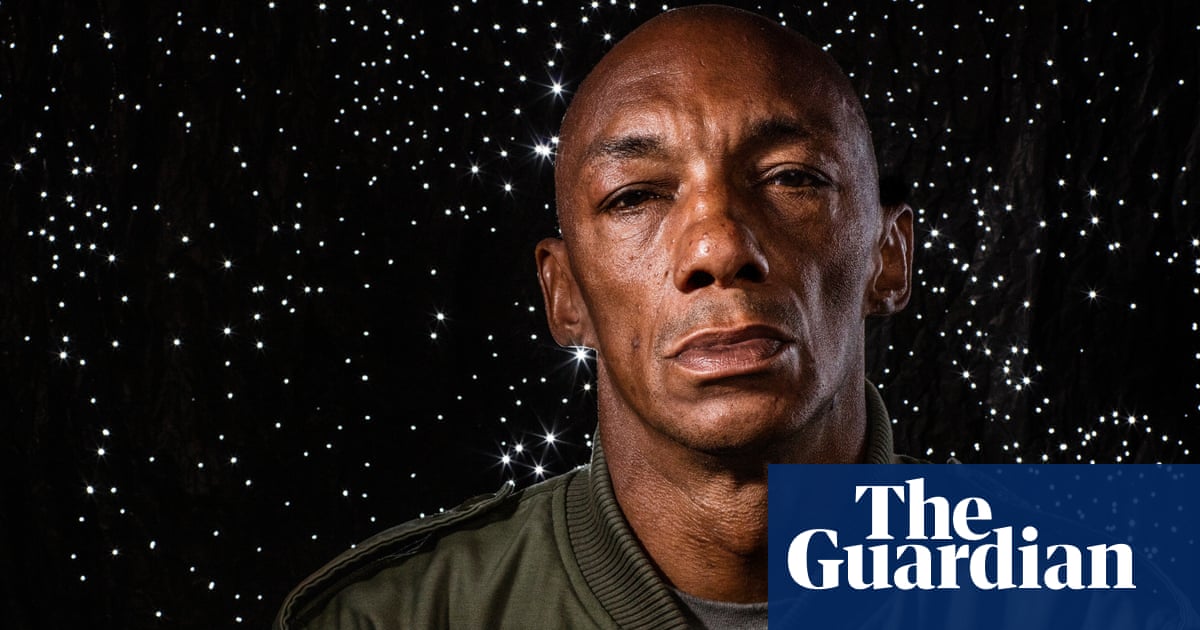
ablo Marí had arrived, or hoped he had. Fourteen years after leaving home, 11 since his professional debut and eight since his second – and last – top-flight match in Spain; three months after the historic trophy that changed things and one after the move that might change everything, he wondered if his moment had come and knew that if it did he would grab it and not let go.
Joining Arsenal was his fourth loan in as many seasons, his eighth club in seven years across four countries, three levels and two continents, including the team he never even met, and he had made 267 appearances, but something had started.
And then it stopped.
After all that, the coronavirus crisis halted everything. At the other end of a Zoom call in north London, bare white wall behind him, the Spaniard smiles. “At first, part of you thinks: ‘Jeez,’ I finally got here, then had to leave again after two days to finish negotiating the contract, came back, it was hard to get going, I hadn’t done pre-season while everyone had been competing seven months. Bit by bit you get through the days, the weeks, and the moment you say ‘I’m ready, I can compete’, this happens …”
“The first thought was: ‘Damn, I wanted to keep playing.’ But this is no small thing; it’s not a cold or flu. When you see its magnitude, professional questions are secondary. What matters is everyone’s health.”
Pablo Marí saw that first hand. Signed on loan from Flamengo in late January, a difficult deal finally done, he sat in the stands when Arsenal were beaten by Olympiakos on 27 February. Four days later he made his debut against Portsmouth in the FA Cup. And five days after that came his first Premier League appearance, against West Ham. He was at a “disadvantage” – a new arrival, on loan, halfway through the season, joining one of Europe’s top five leagues for the first time since he was a teenager and making his first start at that level – but he impressed again. Two appearances, two victories, two clean sheets.
He did not get a third. The game against Manchester City on 11 March was postponed after the Olympiakos and Nottingham Forest owner, Evangelos Marinakis, tested positive for Covid-19 and Arsenal’s players went into isolation. The next day Mikel Arteta tested positive, too. Seven weeks passed, the Spaniard on lockdown in a house with practically nothing in it before he returned to his club’s London Colney training ground on Monday.
Those days are a jumble of messages, disconcerting. “We’ll never know if [Marinakis] was the reason, if the manager caught it somewhere else, but from that moment we were in quarantine. At first we were very scared: hoping he would be OK, that nothing would happen to him or affect his family,” Pablo Marí says. “Things calmed: I think none of the team had the virus. We didn’t do tests; we did 15 days at home, and no one had [symptoms].”
This was not how he planned it, but then nothing has been quite the way Pablo Marí planned it, lockdown another chapter in an unusual journey. His route to Arsenal, at 26, was not exactly direct. “I’ve been a professional 10 years and por gracia o desgracia, for better or worse, I’ve been round and round.”
That’s one way of putting it. Pablo Marí joined Mallorca at 14, making his debut in Spain’s third tier with the B team aged 17, then twice played in Primera – two substitute appearances six months apart. There were three years at Gimnàstic de Tarragona but that was followed by single seasons at Girona, where he barely played; NAC Breda in the Netherlands; and Deportivo La Coruña, ending with playoff defeat.
He didn’t belong to any of them. When he left Gimnàstic, in 2016, it was for Manchester City but the next day Pablo Marí was gone again, loaned to Girona. When he was finally sold, after two more loans, it was to Brazil of all places. “Well,” he says, “by then we’d changed cities four times in four years, so our mentality was different. A footballer’s life is short and we’d been waiting years for an opportunity. We didn’t care where and we knew the moment we got it, we were going to take it.”
He did not get it in Manchester but there’s no recrimination. He doesn’t know if Arteta’s time there might explain Arsenal’s approach – “I suppose you could connect those loose ends, I haven’t asked Mikel,” he says – but he never met Pep Guardiola. Never met anyone, in fact. “You go [to the City Campus] for medicals each year – blood tests, urine, scans – but when I went to the Netherlands and Coruña the [City] first team hadn’t started pre-season, so there was no one there. You never cross paths.
“That can feel a bit strange, but City were transparent. The plan was always to go on loan. They help you find teams but never oblige you and the last word always has to be yours. After two years, I said I wanted to return to Spain, go step by step awaiting a chance in Primera. Look, a player has to have one thing very clear: how much you’re prepared to lose to be a professional. You have to ask yourself that question and be honest. It will never, ever be all lovely. Or all awful. My objective was clear: whether it was City or not, I was going to get to a big club. I was absolutely convinced, ever since I left home at 13.”
At 25, it still hadn’t happened and yet he insists: “I never thought of giving up. Never. I’ve had really bad moments, but you can’t ever leave something you love. Football might have thrown me out, but I was never going to throw it out.” Even if, after a decade, you’d been stuck in the third tier? “I’d still be playing. Absolutely for sure.”
Then Pablo Marí smiles again. “And look how things happen.”
Pretty well, just not the way he imagined it. The breakthrough came 5,200 miles from home. Flamengo, Brazil’s most popular club, offered City €1.3m. “My footballing curve; I never thought this could happen. But over the years of work, injuries, without opportunities, I’ve learned that deep inside an attitude builds which says: ‘The moment someone gives me the chance, there’s no way I’m letting go.’ Flamengo gave me that. Any doubts went up in a cloud of smoke.”
Almost overnight Pablo Marí went from the second division to the Maracanã, a place where “80,000 people never stop singing, living their day like there’s nothing else in the world”. Right place, right time. “If I’d gone younger, it might have been different. It’s thanks to those years fighting, hard times, that those six months were so wonderful.”
Pablo Marí’s first medals followed, the first Spaniard to win the Brazilian title and the Copa Libertadores, secured with two late goals. “Una barbaridad,” he calls it. “I still don’t have the words and don’t think I ever will. I’ll never forget it; it’s etched on my heart.”
Nor will one particular Flamengo fan watching from London. When it is suggested that he is David Luiz’s hero now, Pablo Marí laughs. “I don’t think I’m his idol, but we did talk about the final. He’s helped me loads: anything I needed, he was there. David is so intelligent, great in the dressing room, always joking but the first to pull on his overalls to work.
“And we were very comfortable playing alongside each other, which is a good sign: a big club needs the centre-backs to connect.”
The connection was swiftly broken by Covid-19. A foreigner in London for only six weeks and his house for two, Pablo Marí might have been tempted to head home but he stayed. From there, he talks about Arteta, “Close to the players but demanding too”; about new teammates, players of “tremendous quality”; and their duties to everyone at the club, including through pay cuts. “We’re discussing how to help, talking constantly. We have to support the club and the employees who work so hard for us. It’s important to contribute.”
He talks, too, about NHS staff – doing “an immense job” – and of keeping his small son entertained with no toys, “the poor thing”, and working from an empty home, a routine finally broken this week. The club had been sending “daily plans, revising them regularly, and they sent me a bike, [gym] equipment, weights”.
Pablo Marí does not know if the season will be salvaged and says mentally it is best not to think about that. What he does know is how he would like things to look beyond that. He doesn’t want to walk out of lockdown and out of another club, either. “England’s good for me: there’s a thousand things to improve, but I fit. I’m happy and I’d really like Arsenal to use the purchase option. With the coronavirus situation I don’t know what’s happening, it’s difficult, but I hope I can belong here.
“My moment has arrived. The chance to sign for four years, an opportunity I think I’ve earned. It’s time. I like the idea of no longer going round and round. If I have to, I’ll keep going until my career ends, but I think I’ve found a club to put down roots. A traditional club that supports its people, people who believe in it and give everything. I’d like to be part of that, a great footballer for many years for Arsenal.”












